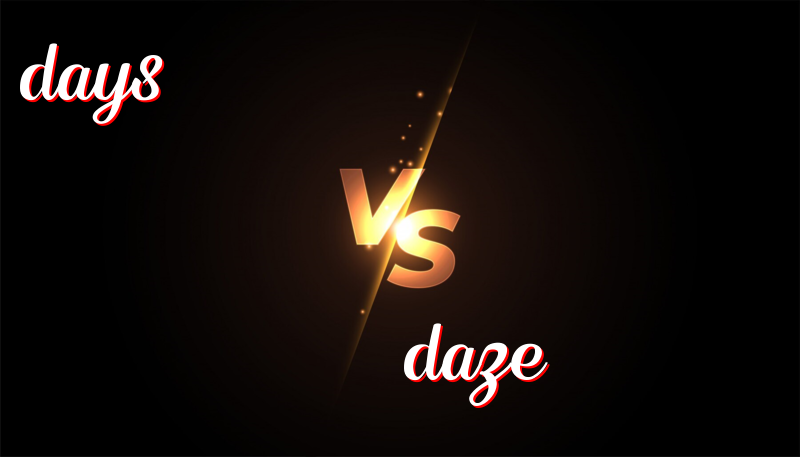Days vs. Daze: Understanding the Difference
Difference between “Days” and “Daze”
Dear students, today we will explore the difference between the words “days” and “daze”. These two words may sound similar, but they have different meanings and uses.
History:
The word “days” comes from Old English “dæg”, which means a period of 24 hours. On the other hand, “daze” has its origins in Middle English “dasen”, which means to stupefy or bewilder.
How to use them:
“Days” is used to refer to a specific period of time, usually from sunrise to sunset. For example:
- I will see you in a few days.
- We have seven days in a week.
- She has been sick for the past three days.
- Those were the good old days.
- He worked day and night to finish the project on time.
On the other hand, “daze” is used to describe a state of confusion or bewilderment. For example:
- The loud noise left me in a daze.
- She was in a daze after hearing the news.
- I was in a daze during the entire exam.
- The bright lights of the city put him in a daze.
- The shocking revelation put her in a daze for hours.
Trick to Remember the Difference:
Remember, “days” is about time, while “daze” is about feeling confused or stunned. The extra “e” in “daze” can remind you of the extra emotion involved.
Summary:
“Days” refers to time periods, while “daze” describes a state of confusion or bewilderment. Always remember the extra “e” in “daze” for emotion.

Leave a Reply
You must be logged in to post a comment.